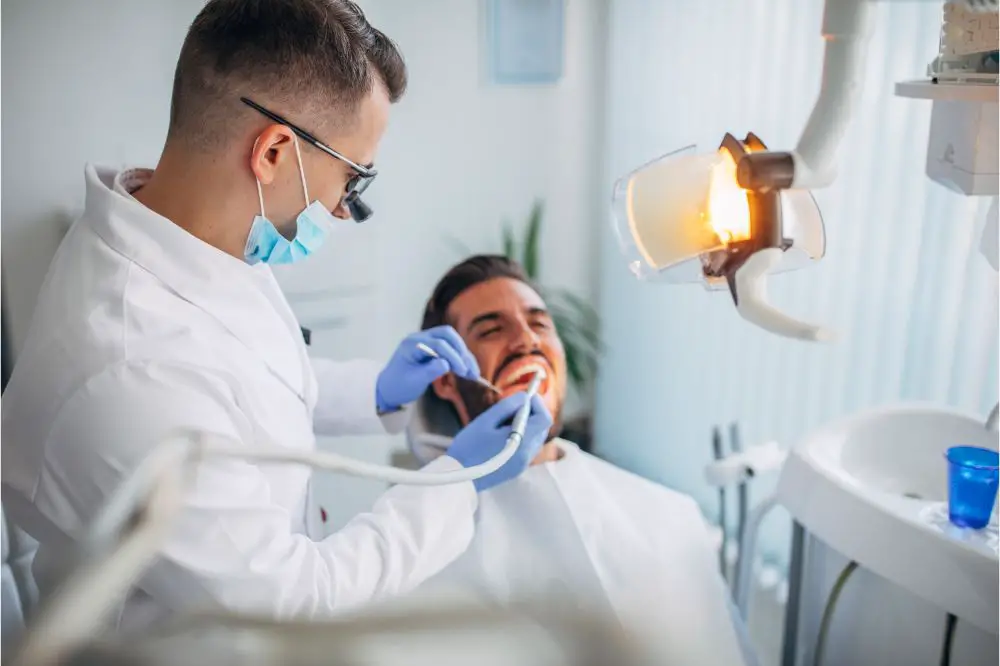
DMD stands for Doctor of Medicine in Dentistry. It originated at Harvard in 1867 and signifies a blend of medical and dental training. Achieving a DMD requires a bachelor's degree, passing the DAT, and completing a rigorous four-year program.
There's no difference in training between DMD and DDS, though both are extensively trained to handle complex dental procedures and maintain oral health. You'll gain insights into the significance of DMD in enhancing patient care and trust.
The Origins and Meaning of DMD
While it may sound straightforward, the acronym DMD, “Doctor of Medicine in Dentistry”, carries a rich history within the evolution of dental education.
The DMD degree reflects a unique blend of medical and dental expertise, first introduced by Harvard University in 1867. At the time, Harvard's faculty chose “DMD” to emphasize a more medical-focused approach to dental care, differentiating it from the DDS (Doctor of Dental Surgery).
This distinction marked a significant shift, underlining the importance of integrating medical principles into dentistry. Understanding this origin helps highlight the foundational value of the DMD in modern clinical practice.
Educational Path to Earning a DMD
Pursuing a DMD qualification requires a demanding and structured academic journey. Students begin with a bachelor’s degree, typically in a science-related field like biology or chemistry.
Next, passing the Dental Admission Test (DAT) is essential for admission into dental school. Accredited dental programs span four years and include both theoretical coursework and clinical training. Courses cover anatomy, pathology, pharmacology, and hands-on patient care through clinical rotations.
Graduating with a Doctor of Dental Medicine ensures candidates are well-prepared for licensing exams and entry into professional dental practice. Educational content can now even be explored on platforms offered by your favorite IPTV provider, making learning more accessible and flexible.
DMD vs. DDS: Understanding the Difference
One of the most frequently asked questions in dentistry is the difference between DMD (Doctor of Dental Medicine) and DDS (Doctor of Dental Surgery).
In reality, both degrees are academically and professionally equivalent. They follow identical curricula, preparing graduates to deliver comprehensive dental care.
The choice of degree title is determined by the university; for instance, some award a DMD while others issue a DDS.
Regardless of the title, both professionals perform diagnosis, treatment planning, restorations, surgeries, and preventive care.
The Role of a DMD in Dental Practice
A Doctor of Dental Medicine (DMD) plays a central role in every modern dental clinic.They diagnose oral diseases, manage treatment plans, and carry out procedures ranging from cleanings to root canals.
Their broad expertise includes preventive, restorative, and cosmetic dentistry. DMDs also educate patients on maintaining oral hygiene and act as the first point of contact for dental emergencies.
Thanks to their intensive clinical training and interdisciplinary knowledge, they often collaborate with specialists such as periodontists or orthodontists. Whether for routine check-ups or complex interventions, a DMD is essential to safeguarding your long-term oral health.
Why the DMD Title Matters for Patients
The DMD title stands as a symbol of trust and clinical excellence.
Dentists with this designation have completed a rigorous academic and clinical path, ensuring they meet national and international standards in dental medicine.
Patients can feel confident knowing their dentist has comprehensive training in diagnostics, surgical procedures, and patient care.
The DMD curriculum covers everything from general anatomy to advanced techniques in prosthodontics and periodontics.
When choosing a dental provider, recognizing the DMD qualification helps you ensure that your oral health is in highly capable hands.
Frequently Asked Questions
Can DMDS Specialize in Areas Other Than General Dentistry?
Yes, you can. DMDs have specialization options beyond general dentistry. With advanced training, you can focus on areas like orthodontics, oral surgery, or periodontics, enhancing your expertise and offering specialized care to your patients.
Are There Any International Equivalents to the DMD Degree?
You’re wondering about international equivalents to the DMD degree. Globally, dental education varies, but degrees like BDS (Bachelor of Dental Surgery) and DDS (Doctor of Dental Surgery) are common international dental degrees recognized in different countries.
What Is the Average Salary for a DMD in the United States?
You're wondering about the average salary for a DMD in the United States. DMD salary trends show a median annual income around $180,000. The DMD career outlook remains strong, with demand for dental services increasing steadily.
How Long Does It Typically Take to Complete a DMD Program?
You’re wondering about the program duration for a DMD. Typically, it takes four years to complete, integrating a comprehensive dental curriculum with both theoretical knowledge and practical clinical training to ensure you're well-prepared for dental practice.
Do DMDS Require Continuing Education to Maintain Their License?
Yes, you’re required to complete continuing education courses for license renewal. Most states mandate specific hours annually or biennially to ensure you stay updated with advancements in dental practices, maintaining competency and high professional standards.